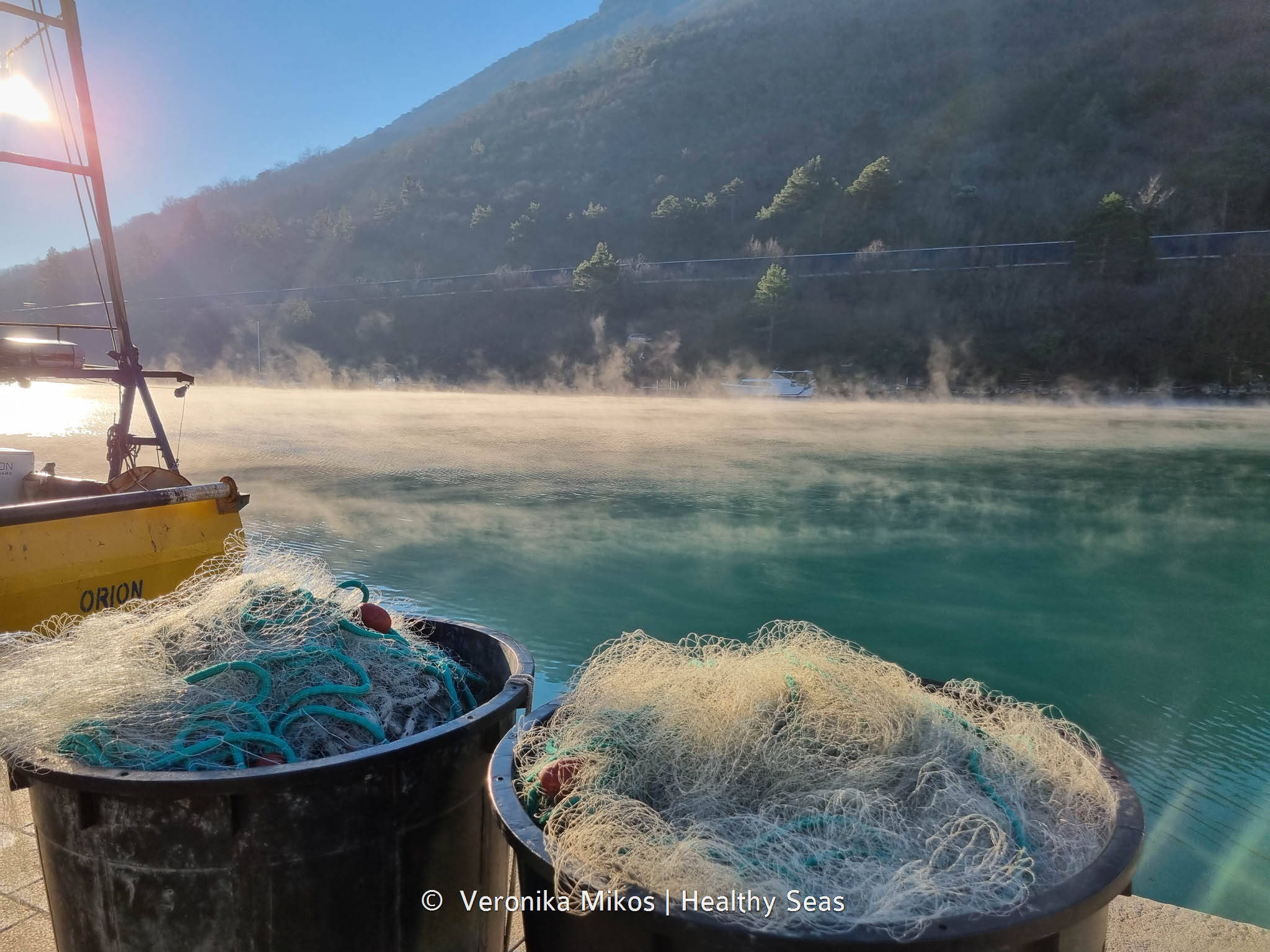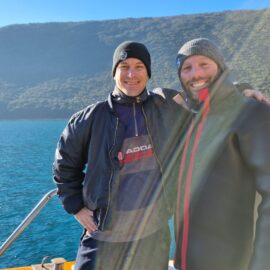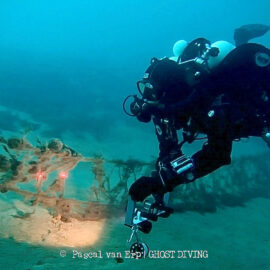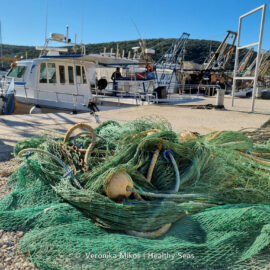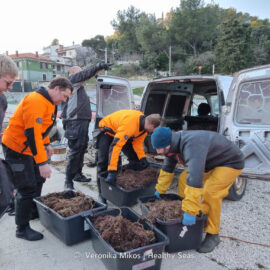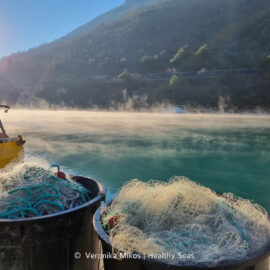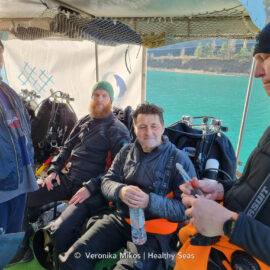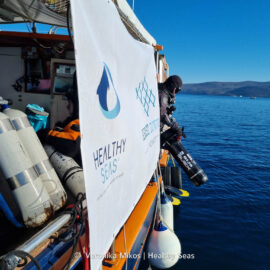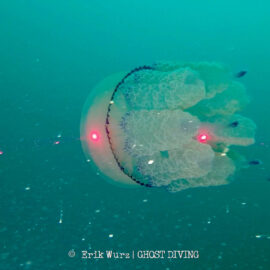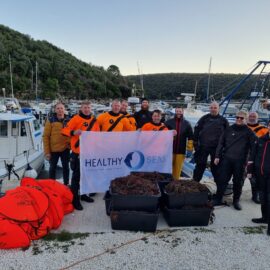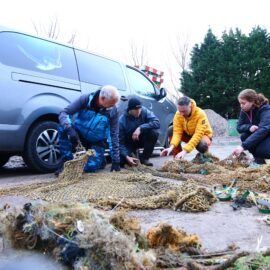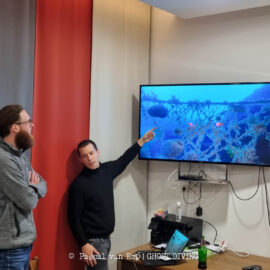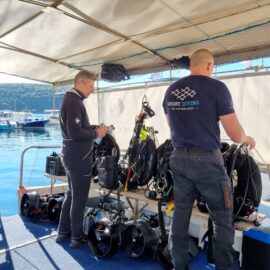The first activity of our scientific project that aims at understanding the source of ghost nets, took place the weekend of January 15th in the Adriatic. Ghost Diving volunteers collected samples that will be evaluated from both a material, as well as an environmental perspective by researchers from Wageningen University & Research.
Marine biologists and fisheries scientists joined the team that included divers from the Netherlands, Croatia and Italy and who besides assisting the research, also kicked off 2022 with a good cleanup, removing 500 meters of gill nets from the seabed!
Globally, it is estimated that 640,000 tons of abandoned, lost and discarded fishing gear end up in the seas and oceans each year, a substantial share of which is fishing nets. In most cases such nets are made of plastic and take hundreds of years to decompose, thus accumulating in the marine environment. Some of these may continue to catch and kill marine life without human involvement, while others may also act as an important habitat for marine life.
The results of the pilot phase of the scientific project will be published late 2022 and will be useful in more effective cleanup strategies and in preventing fishing nets from becoming ghost nets in the future. In the meantime, more activities will be taking place in the North Sea as well as the Adriatic. The project is carried out with the support of DWS.



